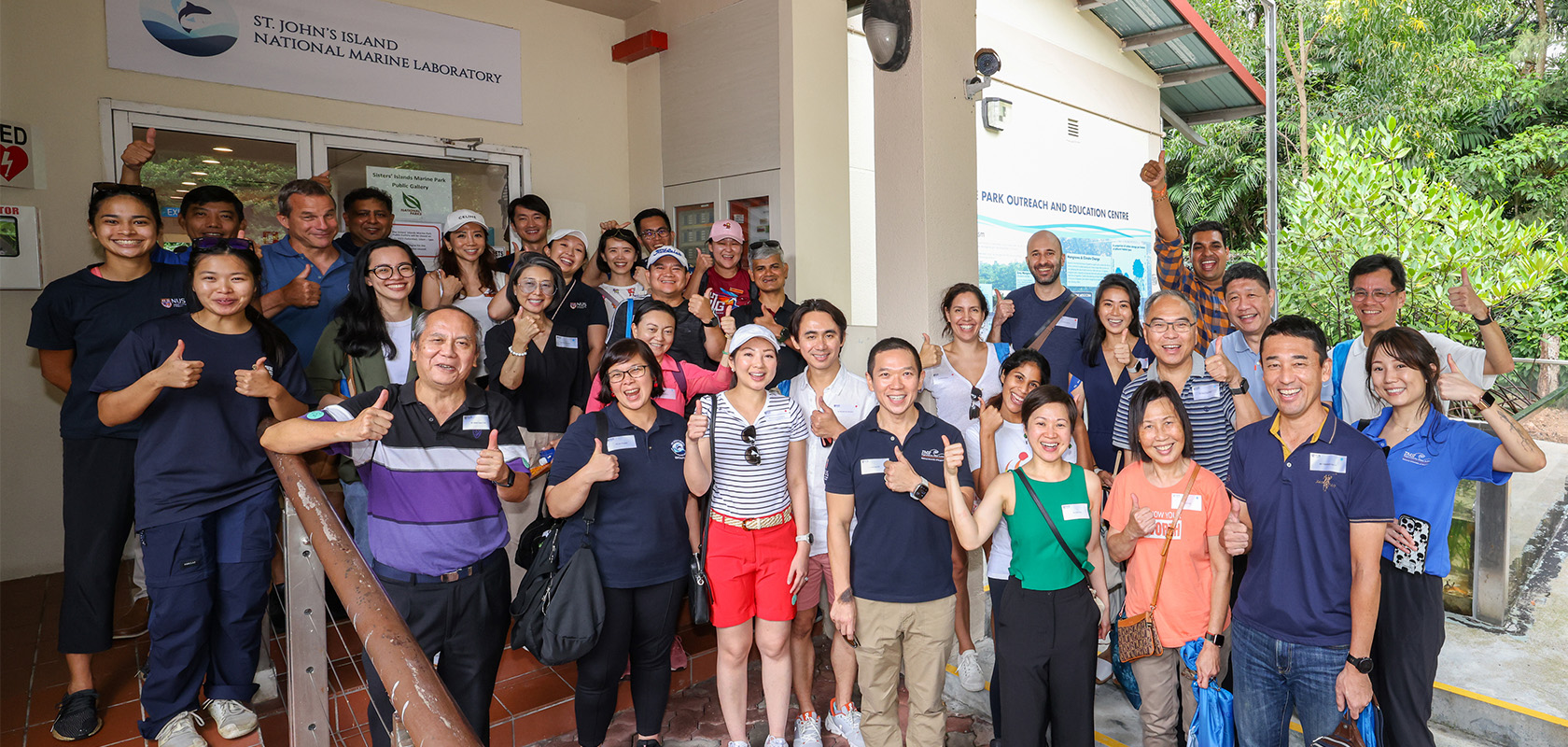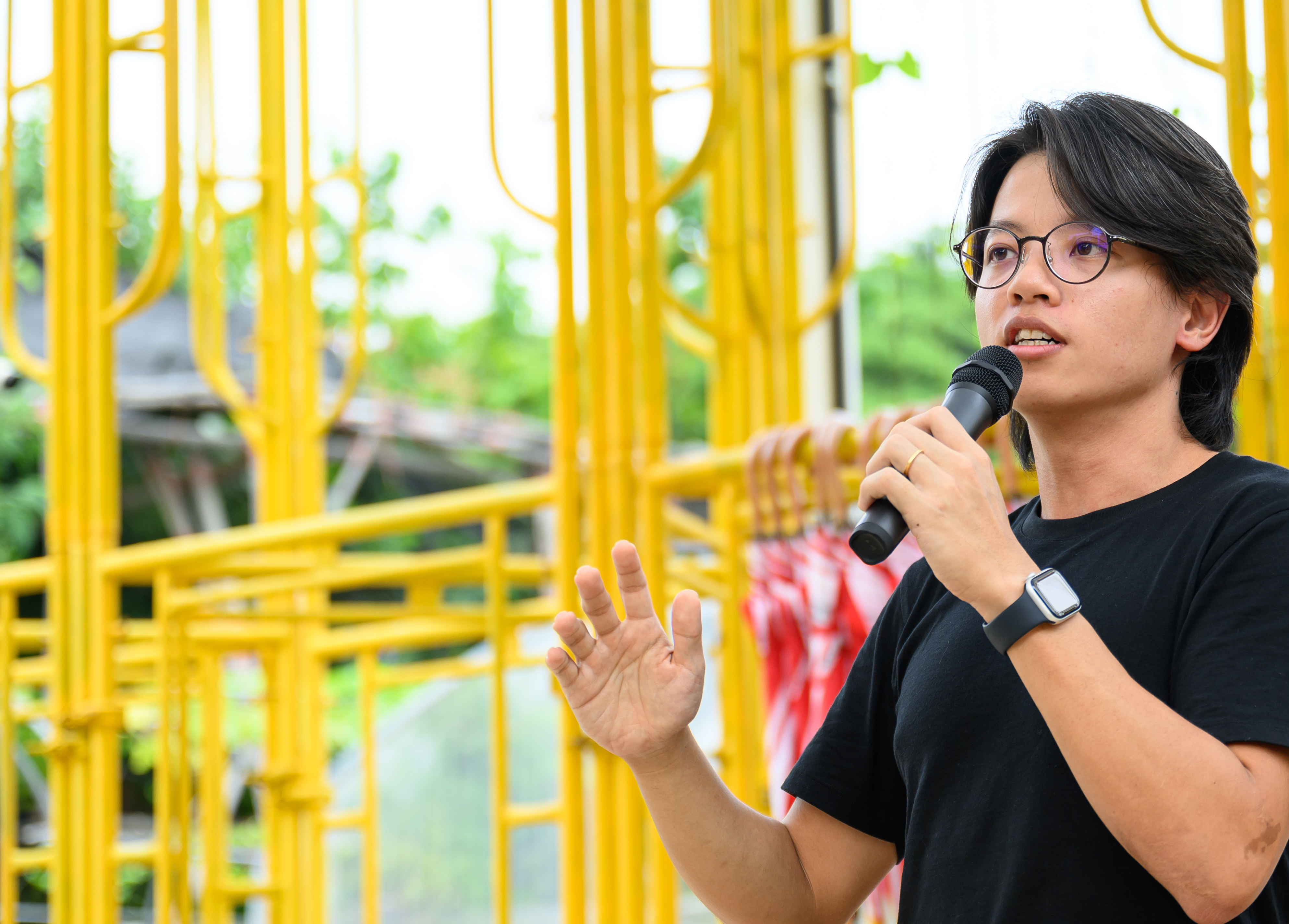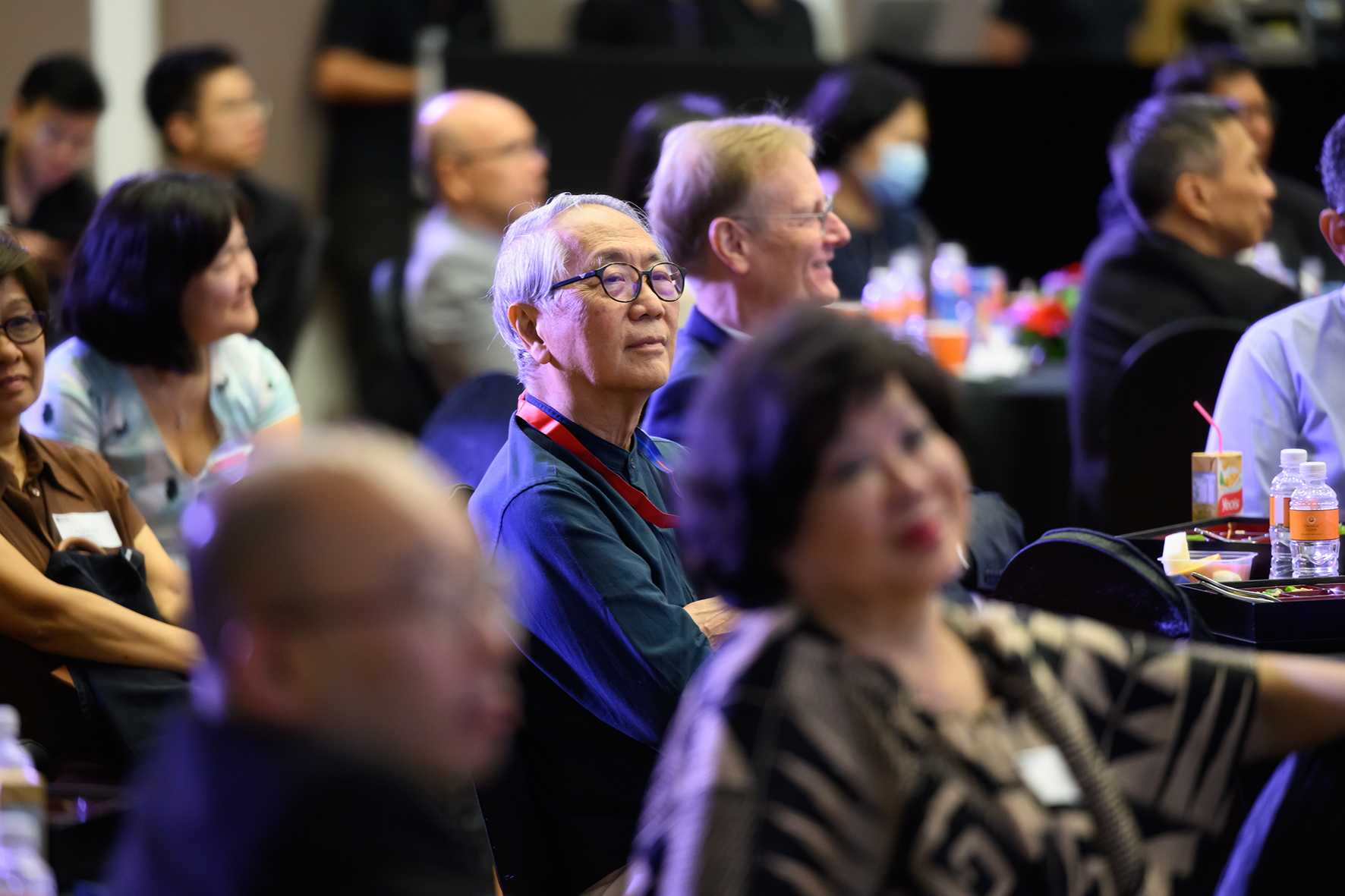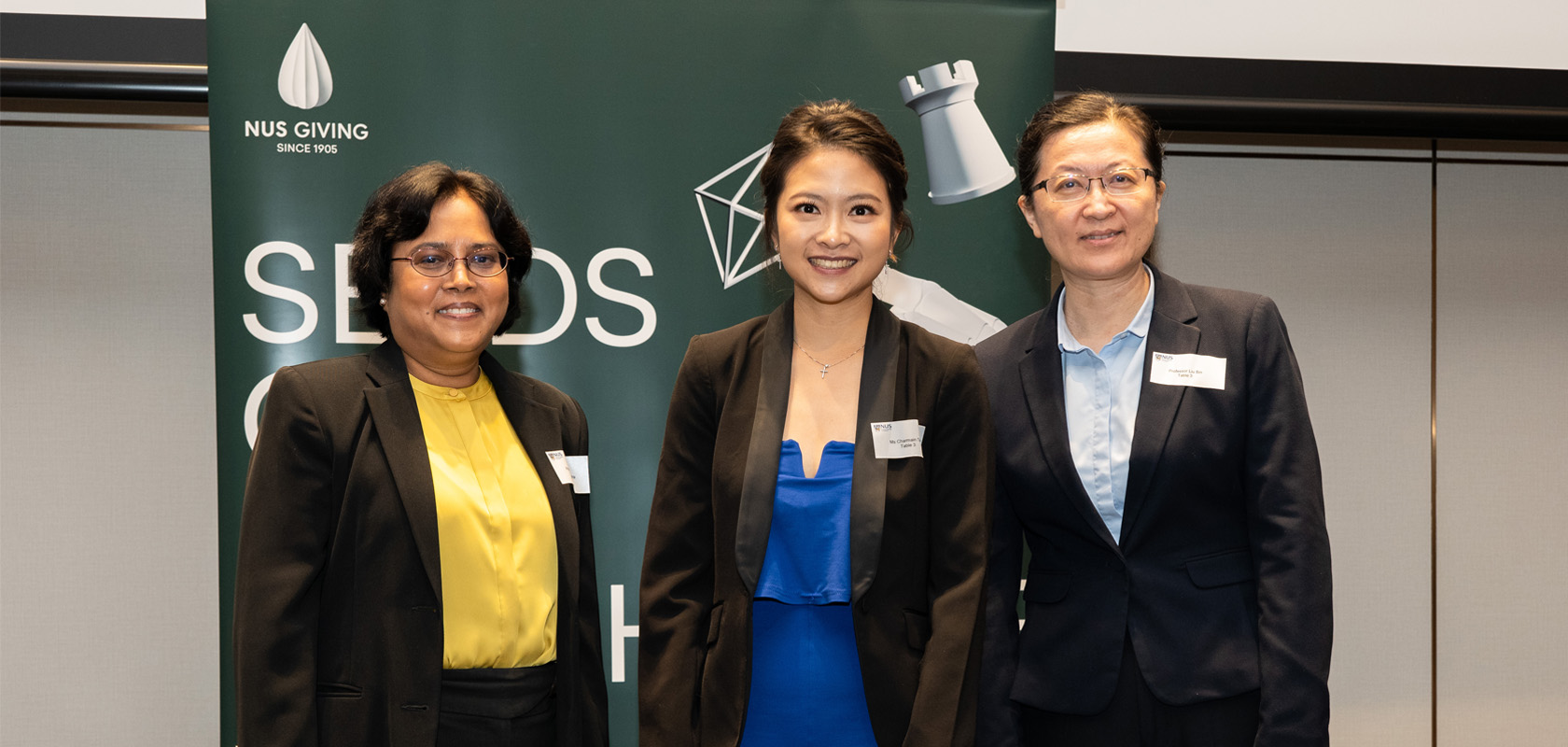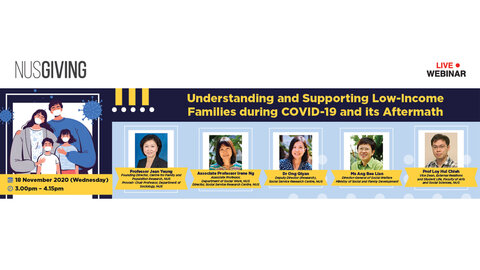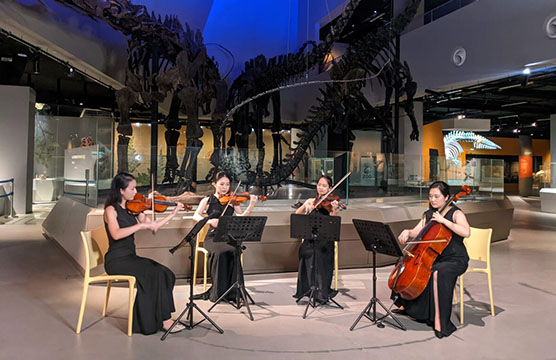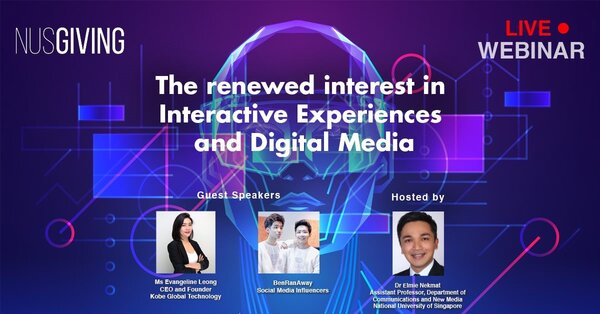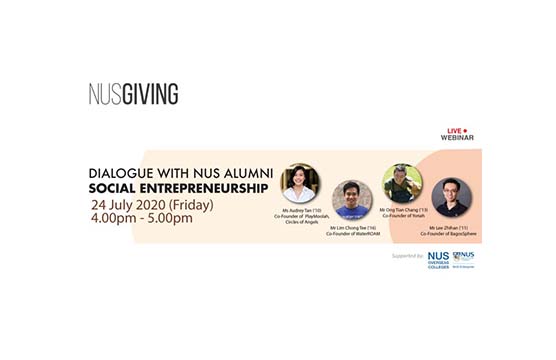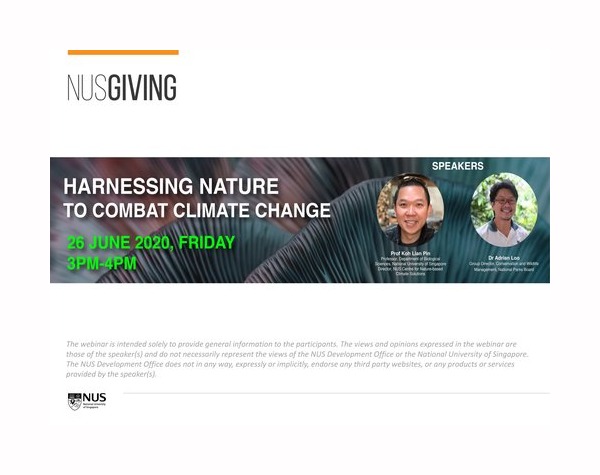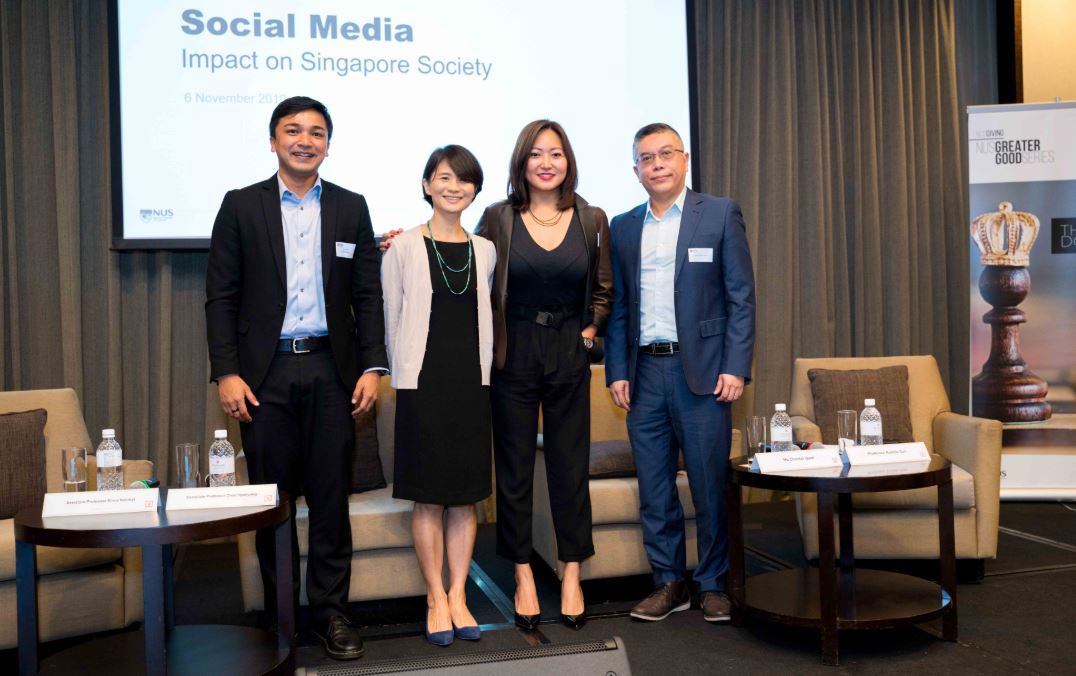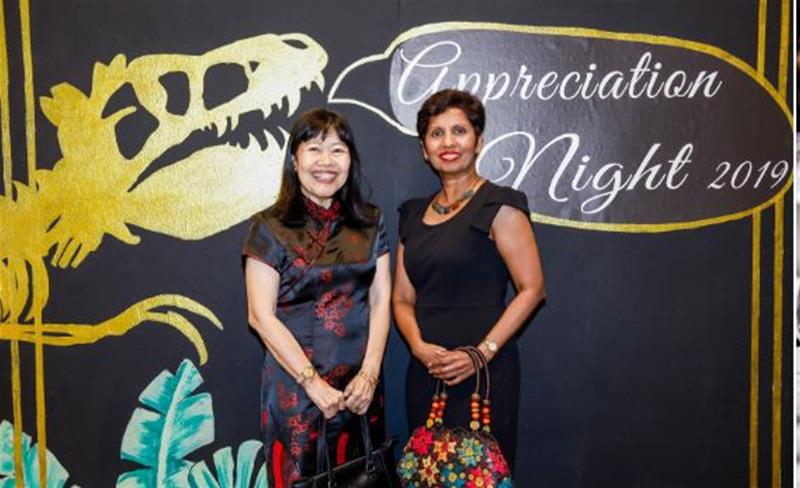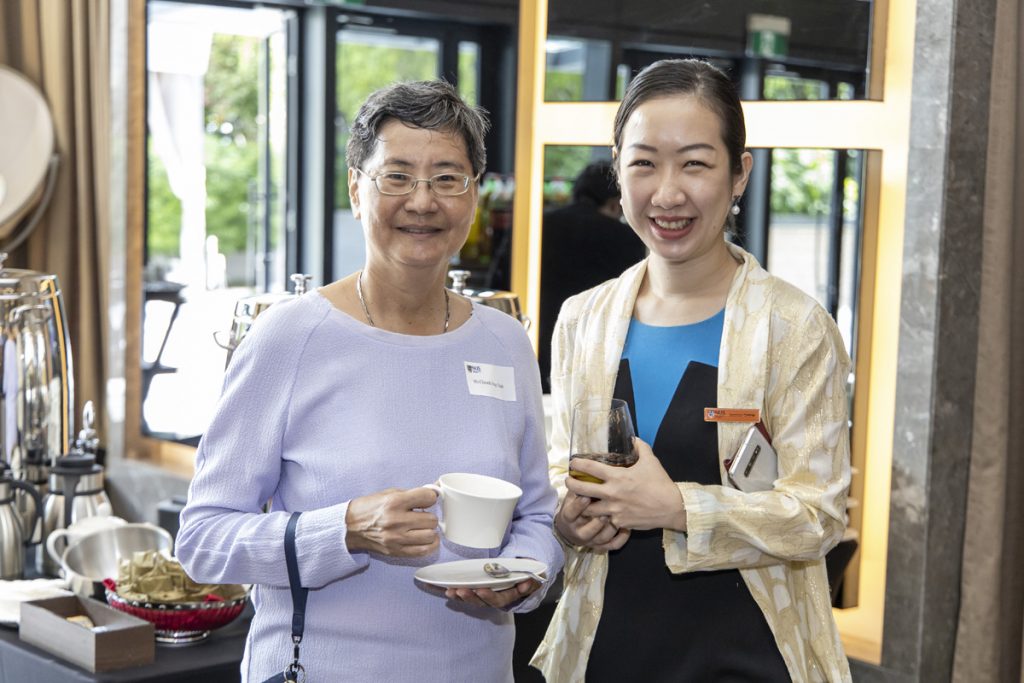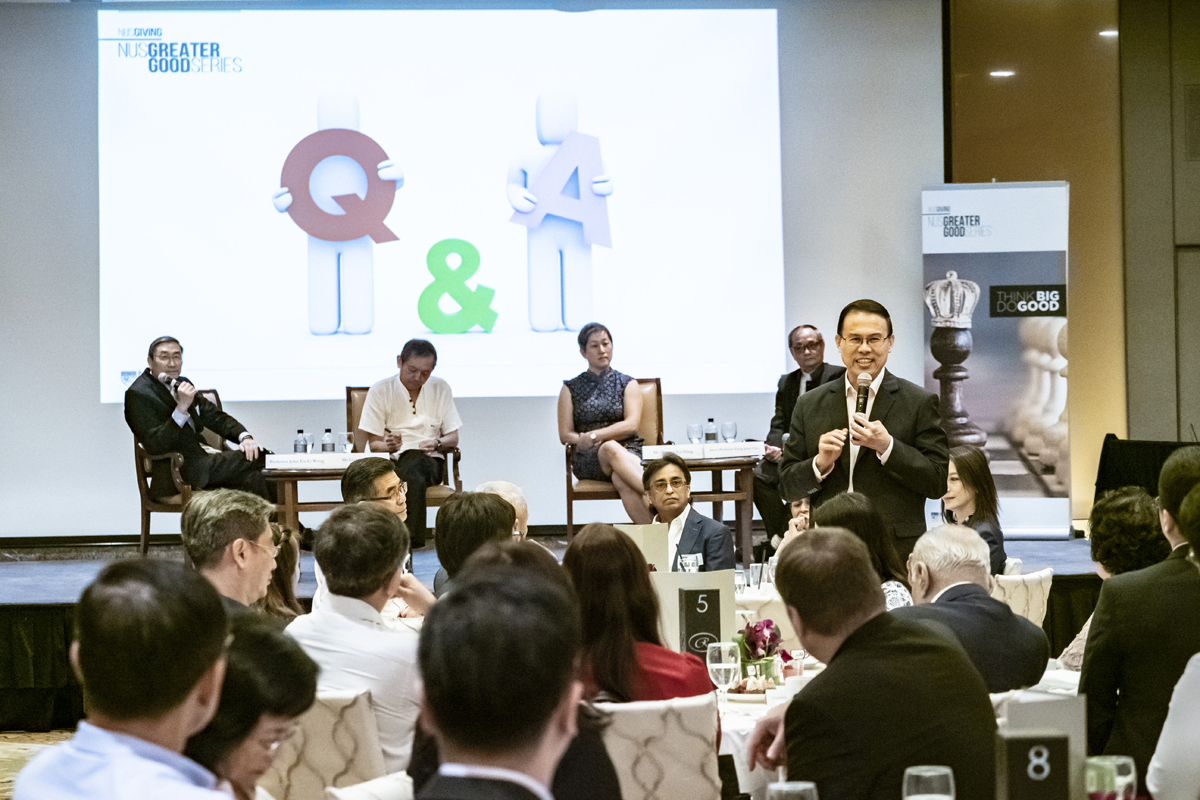NUS Greater Good Series - Artificial Intelligence: Opportunities and Challenges in Digital Transformation through Machine Learning
Nov 20, 2019
At the National University of Singapore (NUS) Greater Good Series titled, Artificial Intelligence: Opportunities and Challenges in Digital Transformation through Machine Learning, experts discussed AI, cybersecurity and privacy
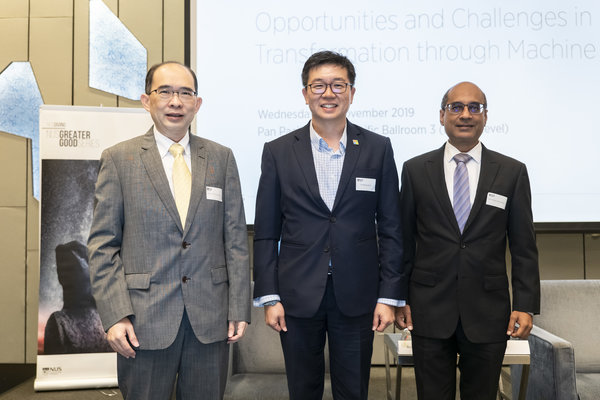
We are now living in an increasingly connected world with computers embedded in every device around us. Artificial Intelligence (AI) and machine learning are no longer buzzwords, but have become ubiquitous and are widely used in our everyday lives.
At the National University of Singapore (NUS) Greater Good Series titled, Artificial Intelligence: Opportunities and Challenges in Digital Transformation through Machine Learning, experts gathered for an engaging discussion on the impact of AI applications and the intersection between AI, cybersecurity and privacy in today’s digital age.
“I strongly believe that we are in one of the most exciting phases of history,” declared Professor Mohan Kankanhalli, Dean of the School of Computing (NUS Computing) and Provost’s Chair Professor of Computer Science.
“As all of us are very much aware, it is very hard to survive in today’s society without having any contact with computing. The way computing has impacted our lives has been to make our lives better. Most interestingly, it is not just impacting people who are technology oriented or technology driven, but practically everybody in society,” Prof Kankanhalli elaborated.
Prof Kankanhalli set the scene by affirming that NUS Computing, which has established itself as one of the world’s best computing schools, is very vibrant in all the cutting-edge areas of computing. It is poised to achieve even greater heights in computing research and to tackle fundamental issues that arise in today’s digital landscape. The challenge lies in the School’s responsibility to educate students to be ethical and moral, and to make sure that technology is used in ways that will benefit society.
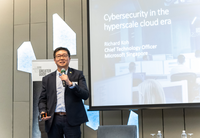
This notion of users’ moral intelligence and the need to advance responsible technology, was echoed by Mr Richard Koh, Chief Technology Officer at Microsoft Singapore. Mr Koh, an alumnus of NUS Computing, shared that one of the most pressing challenges of our times deals with the ethical use of AI and cybersecurity.
With the ever evolving threat of cyberattacks and the use of big data in the everyday operations of organisations, ensuring cybersecurity is of paramount importance. To do this, Microsoft has leveraged on advances in AI and machine learning to protect, detect and respond to malicious activities across all of their product platforms.
“We have to use advances in AI and machine learning for us to be able to apply heuristics and patterns to spot for cyberattacks,” Mr Koh elaborated.
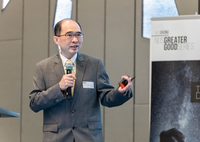
Closely linked to the issue of cybersecurity is the notion of privacy, both at an individual and organisational level. Professor Terence Sim, Associate Professor and Assistant Dean, NUS School of Computing, revealed current research on privacy-preserving technologies that he and his colleagues are conducting at N-CRiPT, a strategic capability research centre based at NUS Computing.
“As researchers, we are concerned with things like privacy because we are not just inventing a tool, we also have to understand the implications of the tool when it’s being used,” explained Prof Sim.
Some of the current research Prof Sim presented included understanding the privacy of gait biometrics, using AI as a privacy advisor for social media, and protecting facial images from machine spying.
Fundamentally, all three speakers believed in the positive changes that advances in AI, machine learning and technology in general, can contribute to society. However, all three caution that technology is a double-edged sword. As we celebrate the benefits it brings, we also need to be cognizant of our responsibility to educate future generations to have moral intelligence and moral integrity to use technology ethically.
As a closing note, Prof Kankanhalli shared exciting new developments that are coming up for NUS Computing. In particular, he mentioned the construction of COM3 @ Imagination Ridge. Slated for completion at the end of 2020, COM3 will house teaching and research facilities, serving as a hub to foster collaboration and innovation. It will enable NUS Computing students, faculty and industry partners to actively investigate many of the issues surrounding AI, machine learning, cybersecurity and privacy.
This is in line with the School’s goal to become a global node of computing that will evolve our thinking and approaches to technology, and significantly contribute to the computing landscape.

